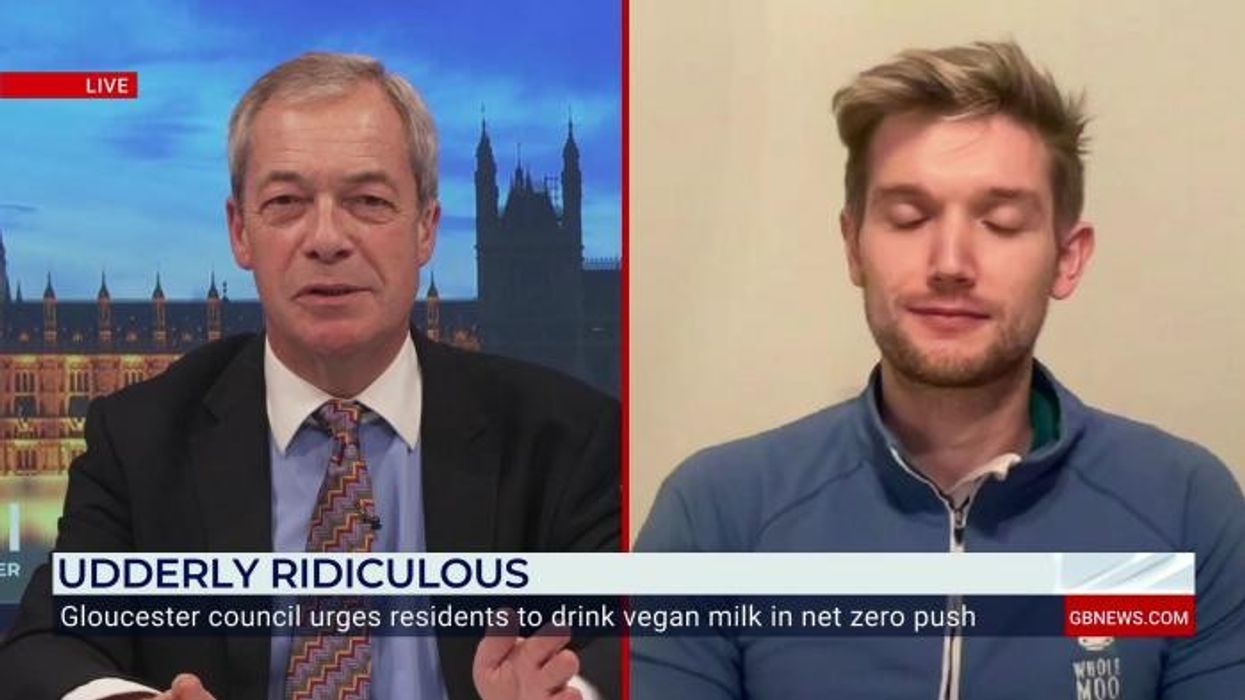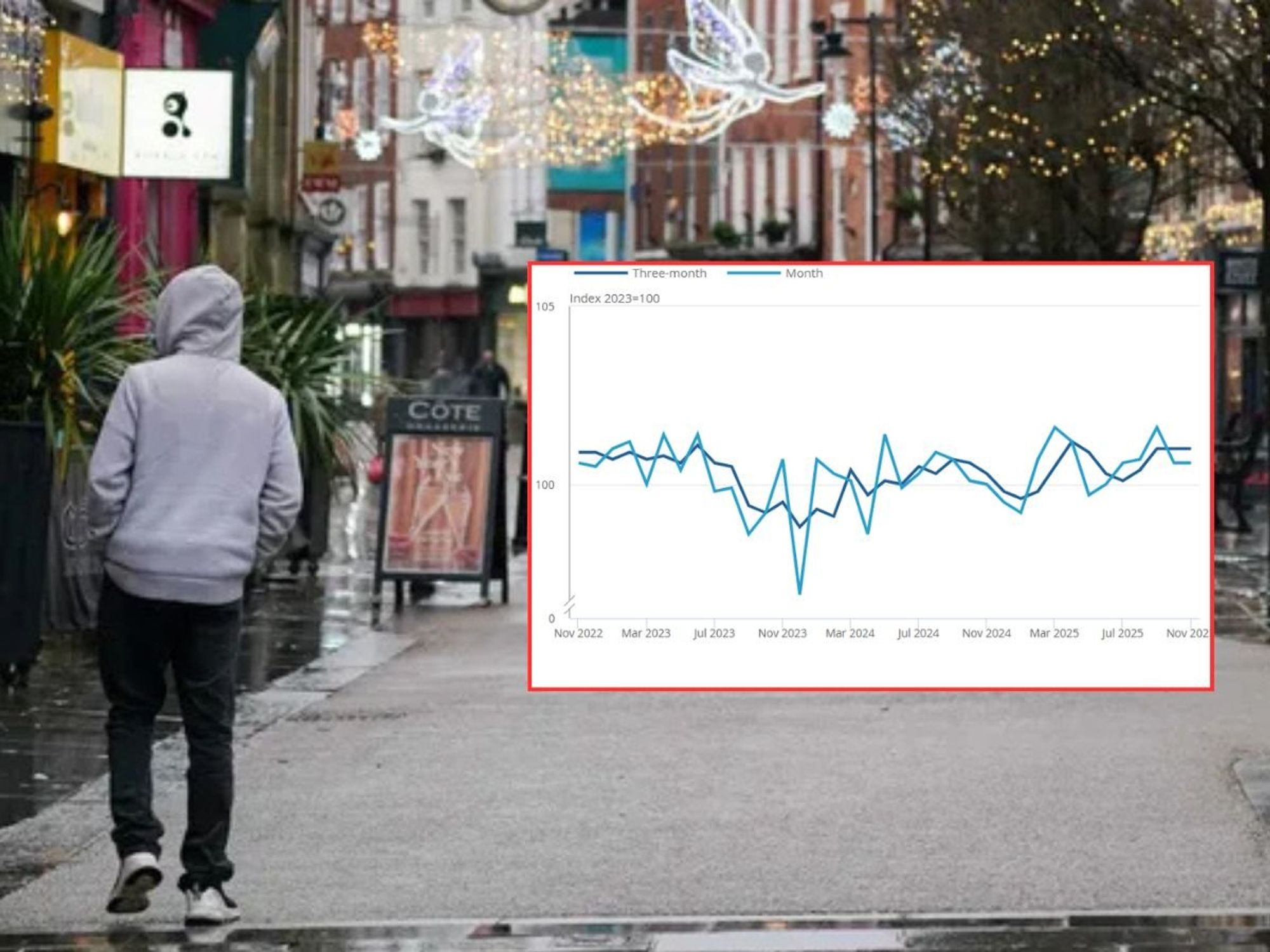Farage blasts 'nonsense' net zero push to 'swap cow's milk' as council issues grovelling apology - 'We didn't mean to cause offence'

The initiative encourages residents to replace cow's milk with alternatives such as almond or oat milk
Don't Miss
Most Read
GB News host Nigel Farage has launched a scathing attack on Gloucestershire County Council's campaign to encourage residents to switch from cow's milk to alternatives.
Speaking on the People's Channel, Nigel branded the initiative "an utter load of complete nonsense" and criticised what he called "global warming lunatics".
The GB News presenter recounted his recent experience at a Mayfair hotel, saying: "I was offered oat milk or skimmed milk, and I didn't want to cause a scene, but I just want bloomin' cow's milk. What is wrong with this?"
He expressed particular dismay that the Conservative-led council was behind the campaign, declaring: "God help us is all I can say."
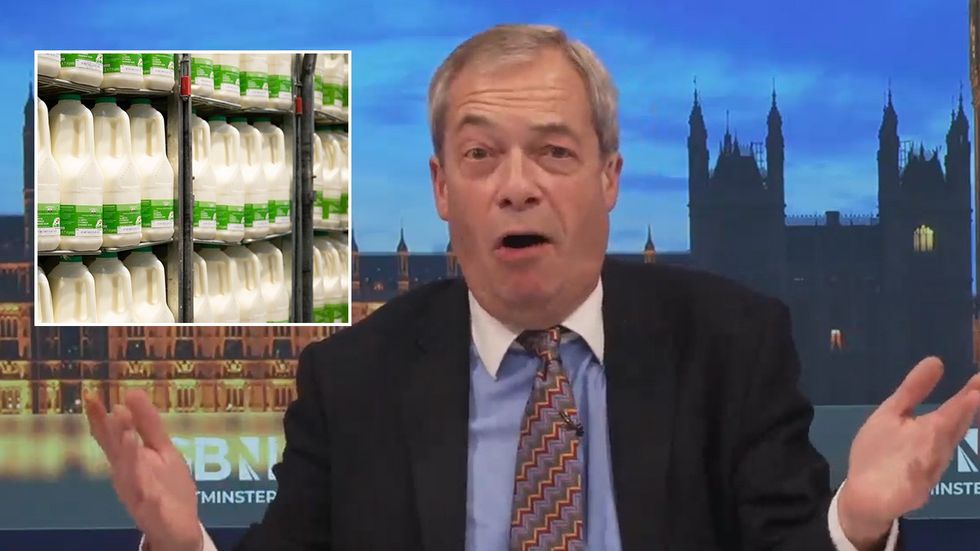
Nigel Farage hit out at the 'nonsense' campaign by Gloucester County Council to swap cow's milk to aid net zero
|GB News / Getty
Local farmers have voiced their frustration over the council's environmental initiative.
The "Swaps in Seconds" campaign aims to help residents reduce their carbon footprints through small lifestyle changes.
Councillor David Gray, cabinet member for environment, said: "Dairy is one of the big producers of methane so our suggestion is every so often instead of having milk with your coffee, you have oat milk or soy and that way make a small difference in the overall impact of your lifestyle on the environment."
The initiative suggests several environmental actions, including switching to plant-based milk alternatives, choosing second-hand items over new ones, and turning off electrical devices.
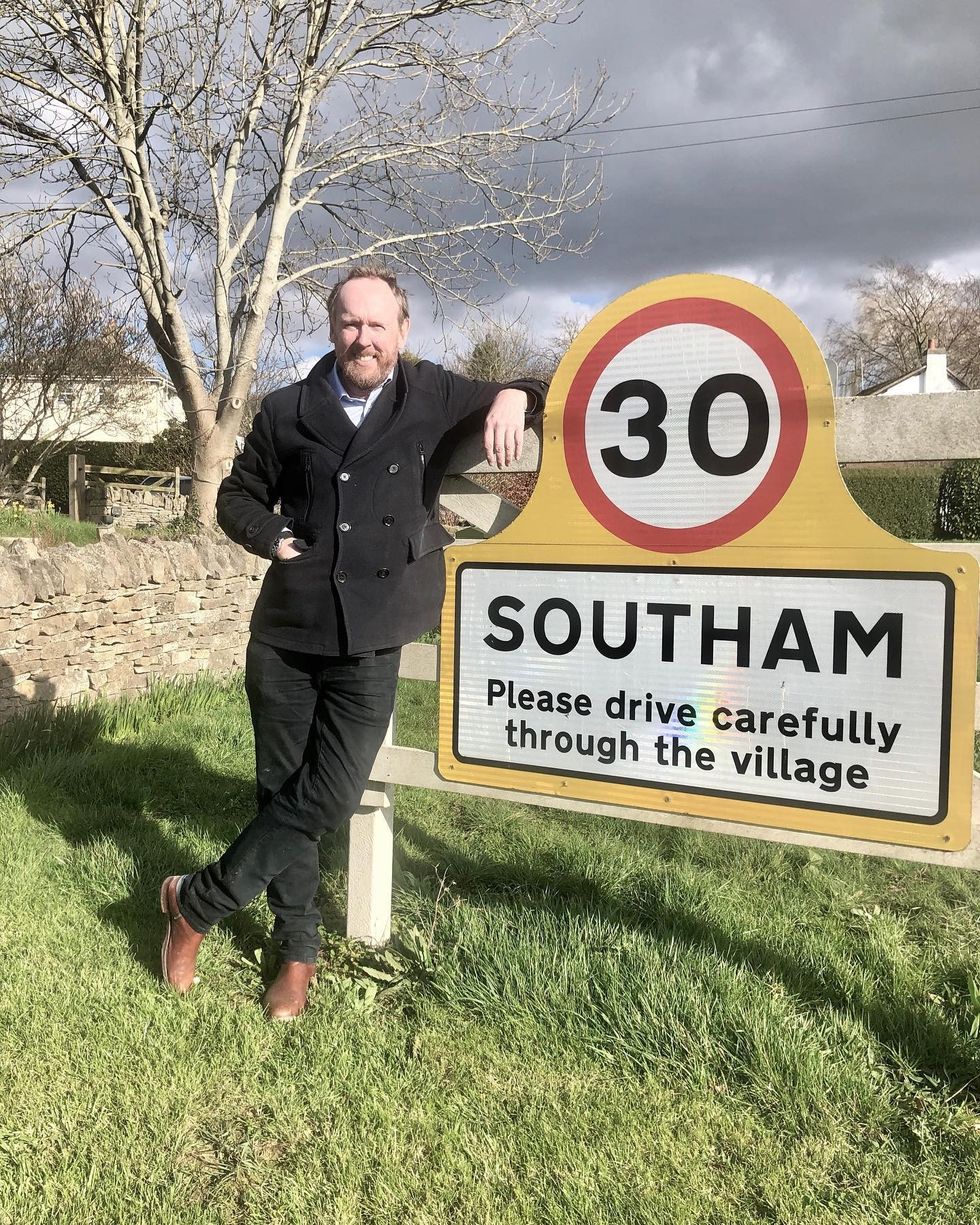
Councillor David Gray claimed that 'dairy is one of the big producers of methane'
|However, Gray claimed that the campaign is not anti-dairy, adding: "We are not saying don't touch milk. The campaign is all about small changes."
LATEST DEVELOPMENTS:
Local farmer Jacob James from Whole Moo World has challenged the council's stance, arguing that UK dairy farming's environmental impact is being misrepresented.
"I do respect that the council has a positive intent in offering this guidance, but it is frustrating in farming that the guidance has been given to people based on evidence that fails to take into consideration any context," he told GB News.
James also explained that while global figures suggest dairy produces around three kilos of carbon per litre, the UK's actual impact is significantly lower.
"When all these things are taken into consideration, the actual carbon impact for UK dairy farms comes down to about one kilo per litre. That is the same as oat milk, which is said at 0.9," James said.
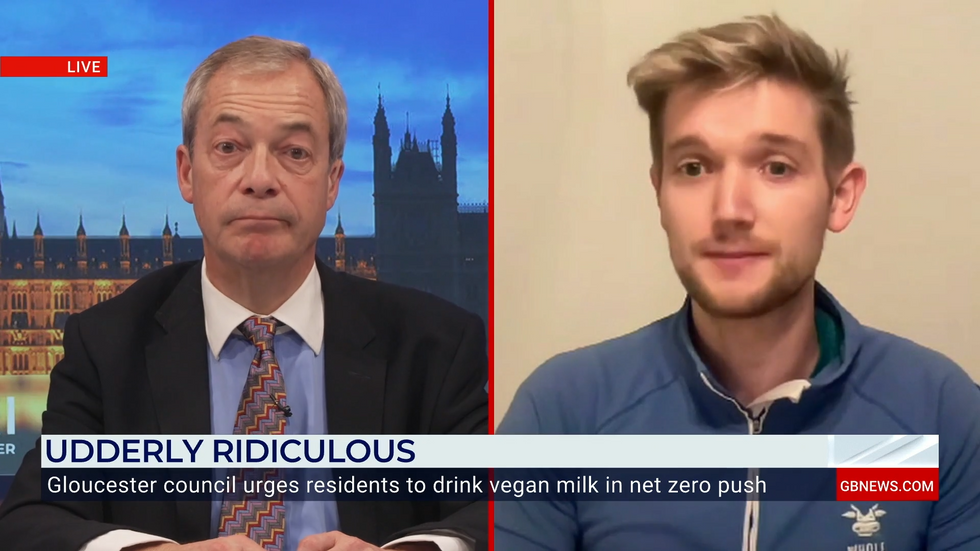
Jacob James told GB News that cattle numbers in Britain are down by more than a million
|GB News
He highlighted that British farms benefit from natural advantages, including abundant water and grass-growing conditions. James pointed to significant efficiency improvements in the UK dairy industry over recent decades.
"We can look back on the 1980s, there were three million dairy cattle in the country. Last year, I think it was estimated by HDB that there was less than two million," he said.
Despite this 33 per cent reduction in cattle numbers, milk production has actually increased from 15billion to 15.3billion litres.
James issued a direct challenge to authorities: "I would like to challenge local Government and even wider Government to match what the dairy farmers have been doing in terms of being a little bit more efficient in their headcount and a bit more productive in what they give us."
Addressing outrage about the recent suggestions, a Gloucestershire County Council spokesman told GB News: "What we've published today is a series of swap suggestions for people to consider - from food, to transport to clothing.
"We didn’t mean to cause offence or to suggest people shouldn't support their local farmers. We encourage everyone to go out and support their local farmers however people buy their milk and other local food.”


